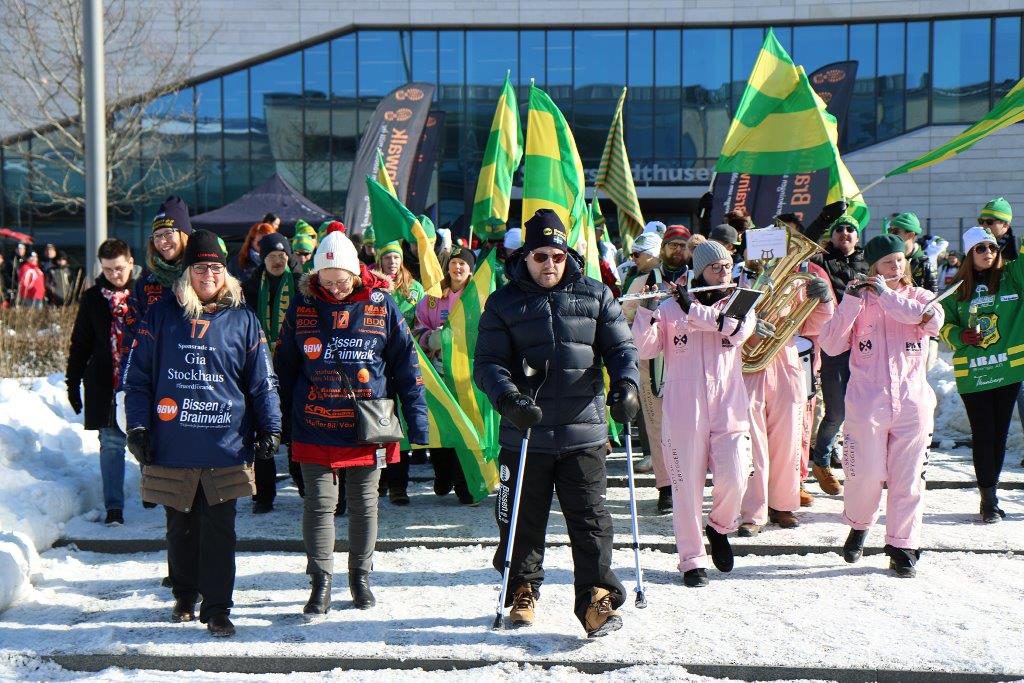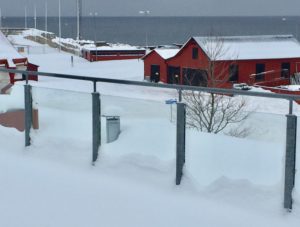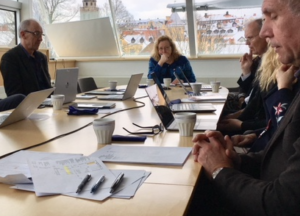(Original Swedish post)
The Humanities Theatre is one of the University’s new meeting places for boundary-crossing dialogue and discussion. It was also the venue for the spring semester’s deans meeting. This is an occasion that brings together the University management, all the deans, vice-deans, student representatives and senior officers for mutual exchange of information and strategic discussions about the future. We – the Vice-Chancellor and Deputy Vice-Chancellor – started proceedings by presenting results for 2017 from the annual report and the budget documentation for 2019–2021, as well as current national inquiries on higher education. We also reminded those present of our general strategic priorities: quality, career and professional development, internationalisation and infrastructure.
The morning’s programme continued with Eva Tiensuu Jansson, who talked about EIT Health. This is a major European collaboration project ranging from education and training to collaboration and innovation, linked to the societal challenge of health for an ageing population. The activities so far are impressive. We saw film clips from the student EIT Health projects Innovation Day and Innovation Game on Gotland. We’re sure this opened the eyes of many in the auditorium to new possibilities for cooperation.
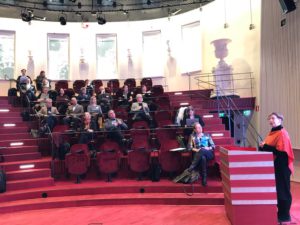
One of the most urgent issues facing all universities globally is confidence in research and how to tackle and prevent research misconduct. The chair of our own Board for Investigation of Misconduct in Research, Erik Lempert, described how we currently deal with alleged misconduct at the University. Our new Adviser to the Vice-Chancellor on Good Research Practice, Stefan Eriksson, presented current research in the area. These days it is possible to buy co-authorship and citations – an alarming development. The academic environment can be both competitive and stressful, which can lead to a temptation to take shortcuts. How can we prevent this? Many questions came up and the discussion will continue in various ways, among the deans and at departments, as well as in the seminar series on this topic that will start in the autumn.
Our three vice-rectors told us what’s in the pipeline in their disciplinary domains. It’s pleasing to see how everyone is processing the results from Q&R17 and hear about exciting development projects and new ventures in education, collaboration and innovation. It’s good for everyone to know what’s going on, even in areas other than their own. After that it was the students’ turn to raise their focus issues for this semester. Some of the important issues for our students’ unions are housing dialogues with the municipality, an analysis of how course reports are used, and preparations for student participation in upcoming educational evaluations.
After lunch, we heard about the work on Development Plan 2050, which is being led by Vice-Rector Johan Tysk, assisted by Annika Sundås-Larsson from the Buildings Division. They were accompanied by representatives from Uppsala Municipality and Akademiska Hus. We divided into groups to discuss student housing, safety and security, the physical environment, artificial intelligence, regional collaboration and much more besides.
It is almost five years since Campus Gotland was established through the merger with Gotland University College. Therese Iverby Gardell and Olle Jansson summed up what has happened and took the opportunity to dismiss a few myths. They looked both backwards and forwards. We have achieved a great deal, we have more students, stability in terms of resources and quality assurance, and there’s a feeling of confidence. Much remains to be done, however, and the full potential has not yet been realised. Just as the Q&R panel observed, the point of Campus Gotland is not to be a miniature version of Uppsala University, but to be a place for renewal, multi- and interdisciplinarity, internationalisation and regional collaboration.
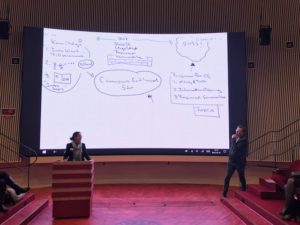
Some of the new research initiatives at Campus Gotland concern the changeover to new energy sources, cultural heritage, sustainable marine development and water supplies, children’s health, digitalisation, and tourism and hospitality. Many of these involve collaboration with the region.
The programme for the day concluded with a presentation by Mats Larhed on the University’s work on Charter & Code. This is important to ensure that Uppsala University continues to be an attractive work environment and to facilitate international recruitment. In the future, it could become a requirement for EU funding. Eighteen of nineteen universities in The Guild are certified – all except Uppsala University. Certification leads to the ‘HR Excellence in Research’ award, and to achieve this we have to comply with 40 principles. We already comply with many of them, but some work remains to be done.
As the day came to a close, we agreed we had had a really good day. A packed programme with good discussions and dialogue, on matters that are important in the immediate future as well as in the really long term. We have a fantastic university full of people with constructive ideas who are eager to participate in discussions on the future of our university both in Uppsala and on Gotland.

